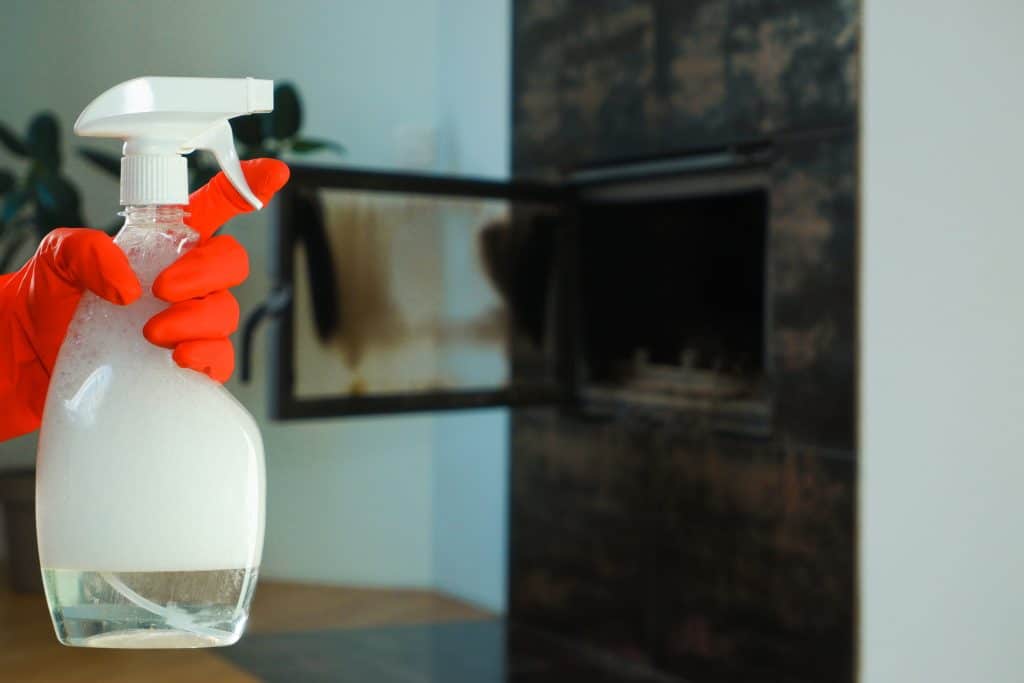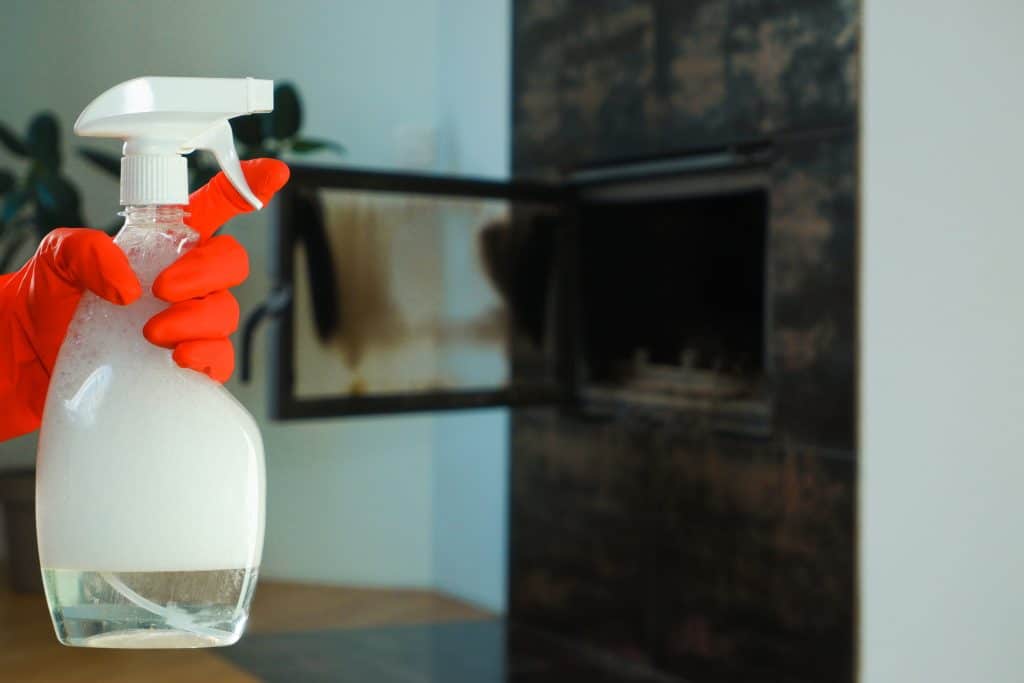What could be more pleasant than a crackling wood fire in a stove during winter? However, a recurring issue often spoils the experience: soot accumulates on the glass, preventing you from fully enjoying the beauty of the flames. Many people use ash to clean the glass, but there’s an equally natural and even more effective trick that few know about. Discover this simple technique to restore the transparency of your glass.
Why Does The Glass Of Your Stove Get Dirty So Quickly?
Before discussing cleaning, let’s understand the causes of soot accumulation on the glass of your wood or pellet stove. Several factors contribute to this phenomenon:
- The quality of wood or pellets
Wet or low-quality wood produces more smoke and particles that settle on the glass. To limit this buildup, it’s recommended to use dry wood, with a moisture content of less than 20%. - Poor combustion
Incomplete combustion promotes the formation of deposits on the glass. This issue often occurs when the oxygen supply is insufficient or the combustion temperature is too low. - An improper air adjustment
If the primary air supply is too low, combustion lacks oxygen and produces more soot. Proper chimney adjustment enhances combustion and reduces deposits on the glass. - Operating in idle mode
Some users reduce the fire’s intensity by closing the air supply to save fuel. This practice leads to poor combustion and increases soot buildup on the glass.
The Effective Trick to Clean the Glass Without Using Ash
Most stove owners are familiar with the trick of using damp ash to scrub the glass and remove soot. While this method is effective, it can sometimes leave streaks or require multiple passes. Fortunately, there’s an even simpler and incredibly effective alternative: white vinegar and baking soda.
Why Does This Method Work So Well?
- White vinegar is a powerful degreaser that dissolves soot residues and black marks left by combustion.
- Baking soda is slightly abrasive, allowing it to lift deposits without scratching the glass.
- The combination of these two ingredients creates an effervescent reaction that helps to detach embedded particles.
How to Effectively Clean Your Stove Glass?
Step 1: Prepare Your Natural Mixture
In a container, mix:
- 2 parts white vinegar
- 1 part baking soda
The mixture will bubble slightly. This is a natural reaction that does not affect the effectiveness of the product.
Step 2: Apply the Solution
- Soak a sponge or soft cloth in the solution.
- Apply it to the glass using circular motions to effectively lift the soot.
- Focus on the most stubborn stains, allowing the solution to sit for a few moments.
Step 3: Rinse and Dry
- Wipe with a damp cloth to remove any residue from the mixture.
- Dry the glass with a clean, dry cloth to prevent streaks.
Other Natural Cleaning Alternatives
If you don’t have baking soda or white vinegar on hand, other natural solutions can also be used:
- Black soap
Mixed with a little warm water, it degreases and cleans the glass without damaging it. - Household alcohol
Very effective at dissolving grease and soot deposits. - Hot water and newspaper
An old method that works well on light dirt.
How to Avoid Quick Soot Buildup on Your Stove Glass?
Prevention is better than cure. Here are a few simple gestures to slow the appearance of soot on your glass:
- Choose well-dried wood
Prefer hardwood like oak or beech, which burns cleaner than softwood. - Optimize combustion
A fire well-supplied with oxygen burns more completely and limits soot production. - Avoid running your stove on idle for too long
Let it operate at full power for a few minutes after lighting to burn off residues. - Clean the glass regularly
Frequent maintenance prevents the buildup of hard-to-remove deposits.
Why is This Method Preferable to Chemical Products?
Many commercial stove cleaners contain harsh chemical substances. By opting for white vinegar and baking soda, you are making an eco-friendly, cost-effective, and safe choice for your health.


